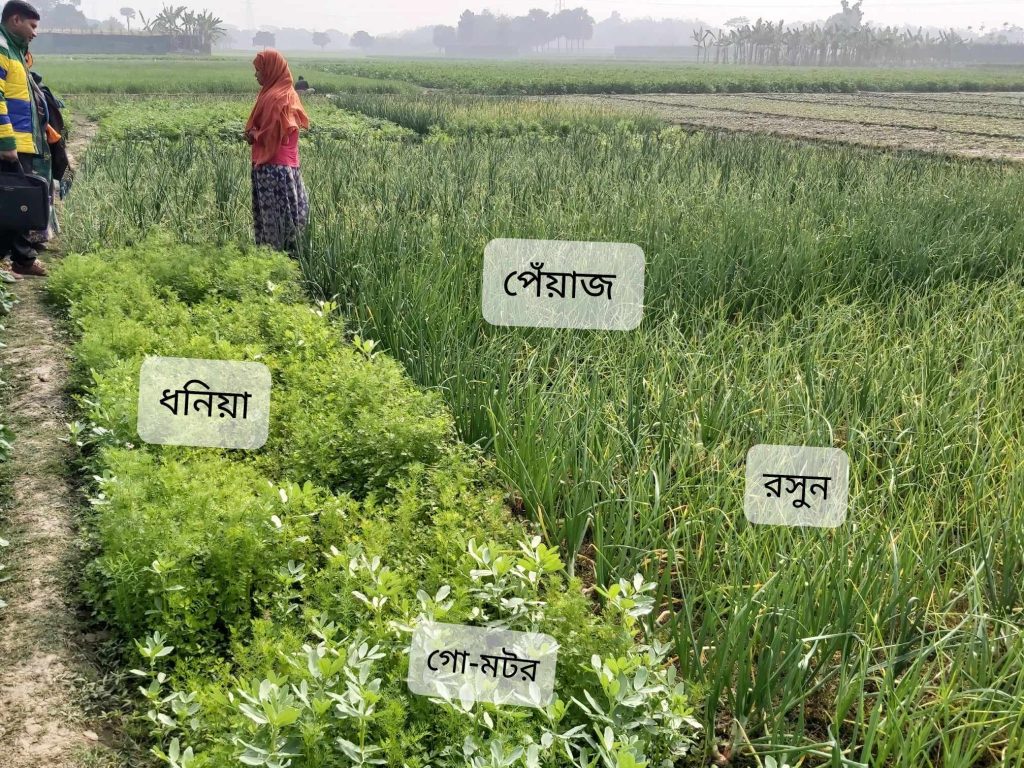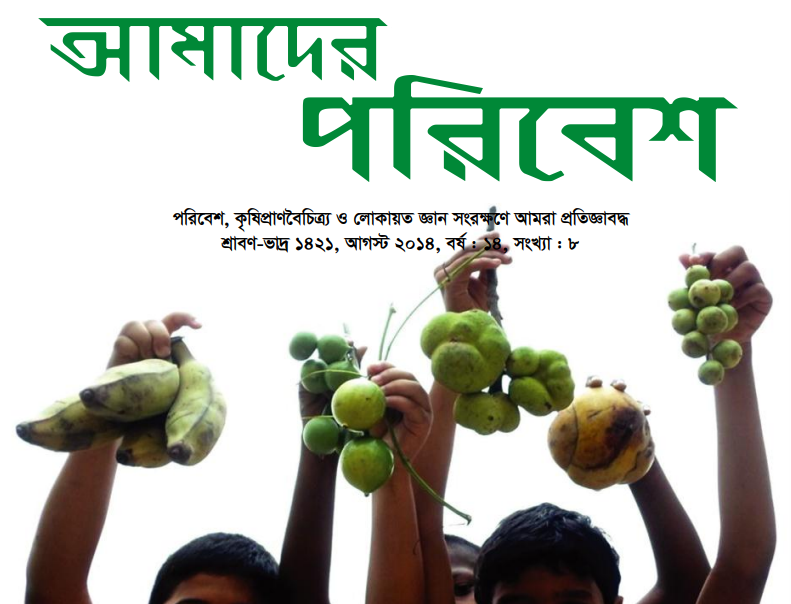By Suman Ali and Amreto Sorkar from Rajshahi
It has been said that seed diversity promotes agroecological development; these native seeds also enrich the agricultural soil. Farmers enjoy food security when they have seeds in hand to cultivate; particularly local varieties of diverse seeds that are adaptive to local environment and climate. Therefore, it has been said that if agriculture is the main driving force of any area, seed diversity plays a major role in flourishing that agriculture. However, after the advent of modern agriculture farmers tend to exercise monoculture cultivation and this is responsible for the decline rate of diversified crops in any given area. As a result, the consumption rate of diverse food among the community is very low including marginalized people. BARCIK, a non-governmental organization has been working in different areas of Bangladesh to promote agroecological practices encouraging the farming communities conserving native seeds and biodiversity. Due to this mobilization and encouragement today the farming communities of one of the areas in the Barind tract have started to yield some benefits.

While working to promote agroecological practices BARCIK always involve the local farming organizations in the process and takes initiatives to develop the capacity of the members of those organizations on different thematic issues including sustainable agriculture principles. Hence, through the joint initiative of BARCIK and farming communities farmer’s led applied research has been conducted in the area to select climate adaptable crops varieties as well as conserve the almost extinct native varieties. This initiatives encourages the farmers to conserve seeds and biodiversity. This initiative also makes farming community realizing the importance of different native crop varieties and try to protect these varieties from extinction. The applied research initiative also plays role to increase local varieties of seeds for the farmers. which are appropriate in their perspective areas. The overall initiatives of farmers with the facilitating supports from BARCIK plays significant role to increase seed diversity in the area. In this regard, if one wants to look at the villages where BARCIK is working, you can see such small initiatives of farmers, which are playing a big role to enriching biodiversity of the area.
Among those small initiatives taken by farmers being facilitated by BARCIK include the initiatives of farming community of Chhota-Amgachi village of Paba upazila of Rajshahi district. 4 years back Amagachi women development organization with its 40 members directly involved in agriculture by practicing sustainable agriculture where they use local seed varieties and conserve those seeds as well as exchange with other farmers. The members of this organization received facilitating, information and materials supports from BARCIK such as seeds and these supports the members of the organization farm various native crops and fruits in their villages. They cultivate potatoes, onion, garlic, as well as almost extinct varieties such as cow-peas, honey bees and turnips. They also grow other spices and pulses including more varieties of crops which meet their family needs for consumption through the year. They also exchange crops and seeds to other farmers and people in their village with the objective to involve and connect these people with such works on promoting agroecological practices.
The president of the women organization Jannatun Nesa (37) has planted red cabbage, coriander, cowpea, onion, garlic, native tomato on 10 decimals of her homestead so that she could meet the demand of spices and pulses throughout the year. She said, “We did not have cow-pea, coriander, bee, fenugreek seeds but BARCIK has provided us those seed 3 years ago. Since then all the members of our organization have been cultivating these crops properly. As a result of this continuous cultivation we now do not need to vegetable from the market. We conserve the seeds of crops we cultivate and exchange those seeds with others.

On the other hand, vice-president of the women organization, Rita Begum (36) said, “Some members of other organizations collected seeds from us and cultivated these crops in their 8 bighas of land. As a result of this the cultivation and conservation of the crops including the extinct ones has increased in our areas. The seeds of these crops are also now available in our areas as all farming communities conserve the seeds of these crops. She went on saying, “We used to buy vegetable from the market that cost us lots of cash, but today we do not need to buy from the market as we produce all these crops through practicing environment friendly agriculture.”
Nonetheless, it is worth mentionable that if the farming communities have diverse crop and grains they can ensure their food security and on the other hand, seed diversity of the given area is enriched. Seed diversity plays a big role in promoting the development and growth of agroecology. BARCIK has been supporting these farming communities to take different environment friendly initiatives to play important role in accelerating and exploring the practice of agroecology in its working areas which combats climate change impacts and ensures food sovereignty of the marginalized communities.
Translated by Silvanus Lamin

